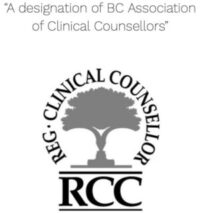Unraveling the Threads of Intergenerational Depression: A Path to Healing
Depression is a pervasive mental health issue that affects millions of people worldwide. It’s a complex condition that can be influenced by a variety of factors, including genetics, environment, and personal experiences. One aspect of depression that is gaining increasing attention in the field of mental health is the concept of intergenerational depression12.
Understanding Intergenerational Depression
Intergenerational depression refers to the phenomenon where depressive symptoms and tendencies are passed down from one generation to the next1. This can occur through a combination of genetic predisposition and environmental factors. For instance, children who grow up in a household with a depressed parent may learn maladaptive coping mechanisms and thought patterns, which can increase their own risk of developing depression1.
Research has shown that young people with both a depressed parent and depressed grandparent had a three-fold increased risk of major depression1. This highlights the significant impact that family history can have on an individual’s mental health.
Breaking the Cycle: Treatment Options
Despite the challenges posed by intergenerational depression, there are many effective treatments available. These include various medications and evidence-based psychotherapies1. One key finding from research is that treating the depressed parent can have a significant impact in reducing the symptoms in their children13. This underscores the importance of early intervention and treatment in breaking the cycle of intergenerational depression.
The Path to Healing
Healing from intergenerational depression involves more than just treating the individual. It requires a holistic approach that addresses the family system as a whole. This can involve family therapy, where all members of the family participate in treatment sessions to learn healthier ways of interacting and supporting each other.
In addition, individual therapy can be beneficial for those struggling with depression. Cognitive-behavioral therapy (CBT), for instance, can help individuals identify and change negative thought patterns that contribute to their depressive symptoms.
Medication can also play a crucial role in managing depression. Antidepressants can help regulate mood and alleviate symptoms, making it easier for individuals to engage in therapy and make positive changes in their lives1.
Conclusion
Intergenerational depression is a complex issue that requires a comprehensive approach to treatment. By understanding the patterns of depression in families, healthcare providers can better identify those at risk and provide early interventions. With the right support and treatment, it’s possible to break the cycle of intergenerational depression and pave the way for healthier, happier generations to come4.

